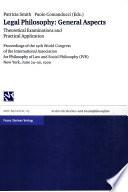
Maintaining Performance
Evidence-based Educational Facility Management Through a Decision-support Tool Leveraging Prior Empirical Research
Public institution facility operations and maintenance is a significant factor enabling an institution to achieve its stated objectives in the delivery of public service. To meet the societal need, Facility Directors must make increasingly complex decisions managing the demands of building infrastructure performance expectations with limited resources. The ability to effectively measure a return-on-investment, specific to facility maintenance indirect expenditures, has, therefore, become progressively more critical given the scale of public institutions, the collective age of existing facilities, and the role these institutions play in society. This research centers on understanding the method of prioritizing routine work in support of indirect institutional facility maintenance expense through the lens of K-12 public education in the state of Arizona. The methodology documented herein utilizes a mixed method approach to understand current facility maintenance practices and assess the influence of human behavior when prioritizing routine work. An evidence-based decision support tool, leveraging prior academic research, was developed to coalesce previously disparate academic studies. The resulting process provides a decision framework for prioritizing decision factors most frequently correlated with academic outcomes. A purposeful sample of K-12 unified districts, representing approximately one-third of the state's student population and spend, resulted in a moderate to a strong negative correlation between facility operations and student outcomes. Correlation results highlight an opportunity to improve decision making, specific to the academic needs of the student. This research documents a methodology for constructing, validation, and testing of a decision support tool for prioritizing routine work orders. Findings from a repeated measures crossover study suggest the decision support tool significantly influenced decision making specific to certain work orders as well as the Plumbing and Mechanical functional areas. However, the decision support tool was less effective when prioritizing Electrical and General Maintenance work orders. Moreover, as decision making transitioned away from subjective experience-based judgment, the prioritization of work orders became increasingly more consistent. The resulting prioritization, therefore, effectively leveraged prior empirical, evidence-based decision factors when utilizing the tool. The results provide a system for balancing the practical experience of the Facility Director with the objective guidance of the decision support tool.
- ISBN 10 : OCLC:1294536673
- Judul : Maintaining Performance
- Sub Judul : Evidence-based Educational Facility Management Through a Decision-support Tool Leveraging Prior Empirical Research
- Pengarang : Michael A Beauregard,
- Kategori : Academic achievement
- Bahasa : en
- Tahun : 2019
- Halaman : 242
- Google Book : http://books.google.co.id/books?id=RtryzgEACAAJ&dq=intitle:Management+of+Educational+Infrastructure+Facilities&hl=&source=gbs_api
-
Ketersediaan :
Moreover, as decision making transitioned away from subjective experience-based judgment, the prioritization of work orders became increasingly more consistent.








